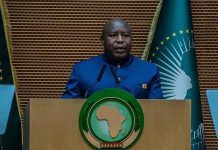Africa-Press – Lesotho. Research I have conducted indicates that the Ministry of Education and Training (MOET) has a tendency to develop laws and policies that it often fails to communicate to the stakeholders.
Two examples here are the introduction of free primary education that was met with a lot of resistance because “the owners of the schools” claimed they had not been engaged in discussions leading to the implementation of that policy.
Another example is the introduction of the Curriculum and assessment Policy: Education for individual and social development of 2009. The problem with this policy is still poor implementation as teachers do not fully understand the curriculum.
Also, schools have no relevant resources for the proper implementation of this curriculum policy. I will turn a blind eye to the chaos caused by the notorious “supposed mistake” of salary increases of the 1990s.
Based on the above two examples, I would now like to get into the current bone of contention. Teachers and principals all over the country protested a few weeks ago. What caught my attention and interest out of the fifteen points raised, was point four.
Before embarking on what point four is about and its implications on the development of education in Lesotho, I would like to briefly narrate my experiences with the TSD/TSC so that the reader can understand the position I am writing from.
In 2006, I was employed at one school as a substitute teacher, a position I held for four years before it ended abruptly and under unexplained circumstances.
In January 2010 I signed a permanent contract with the school but without clear explanation that appointment was not approved. Visits to the Human Resources district TSD office and TSD Maseru never produced any results.
A visit to the Principal Secretary of the Ministry of Education and Training was also fruitless. Why am I telling this story? It is for the simple reason that point 4 raised in the teachers and principals’ concerns resonates with what I went through eight years ago.
This means that for eight good years the MOET has not seen the need to look into the appointment of teachers and do right by it. In point four, teachers and principals complain that the Teaching Service Commission (TSC) has now taken over the work of the school boards and as such, the boards no longer know what they should do in terms of hiring teachers.
The complainants further state that the TSC has introduced a new form of hiring where the school board has to list six candidates for the commission to choose from. This practice, the teachers lament, is open to corrupt hiring and nepotism thus it should come to an end as soon as possible.
In addition, when the school boards appeared before the Public Account Committee (PAC) in parliament, they pointed out that the TSC is not part of the interviewing process but it has given itself the mandate to hire teachers. In some cases the TSC hires people that have not even been part of the interview processes, the school boards claimed.
However, the TSC, a few weeks prior to the school boards, before the PAC stated that the teaching service regulations state that the school boards should recommend six teachers, not one teacher as was previously the practice, to the commission for appointment.
The TSC claims that the practice of recommending one teacher was prone to nepotism, favouritism and corruption, where the school board members ensured that their preferred candidate scored higher than their competitor.
The conflicting views of the school board and the TSC call for one to look at what the legislation stipulates. In this case, the Education Act of 2010, Section 25 (c) states “A school board shall, in a public school, recommend to the appointing authority the appointment, promotion, demotion or transfer of a teacher.
The same Act in Section 42 (1) says “The functions of the Commission are to appoint, promote, demote, transfer and remove from office teachers whose salaries are paid by Government.
” These two sections clearly stipulate the functions of each body, the school board recommends while the TSC implements. What is not clear though is whether the recommendations by the school boards are binding or not to the TSC.
The word “recommendation” has been interpreted in many ways especially in the political arena when the country was dealing with the Justice Mpaphi Phumaphi report.
It seems that the same word is in play again when it comes to who should actually appoint teachers. This confusion, I believe can simply be resolved through the establishment of a detailed Placement Policy by the MOET.
Why a policy, I am suggesting a policy because if it has any shortcomings, they can, as opposed to the Act or Regulation, be easily identified by the teachers.
Furthermore, I challenge the MOET to do introspection of their work, especially the relations they have with church and independent schools in particular.
For a long time, the MOET and the churches, teachers or principals have been at each other’s’ throats where teachers and school management are always complaining of lack of consultation by MOET on issues affecting schools.
It is time that the MOET learns that education is a three legged pot that cannot function without all its legs. In some instances the MOET develops very good policies that it never implements for unclear reasons.
A good example of policies that have never seen the light of day includes the Lesotho education Sector HIV and AIDS Policy of 2012 and the Child Friendly School Standards Policy of 2012.
I challenge the MOET to come to the party and ensure that it “promotes and implement policies which ensure acquisition of functional literacy among all Basotho and development of a productive, quality human resource base through education and training,” as it states in its mission statement. It is high time that the MOET takes education seriously in this country.
For More News And Analysis About Lesotho Follow Africa-Press






